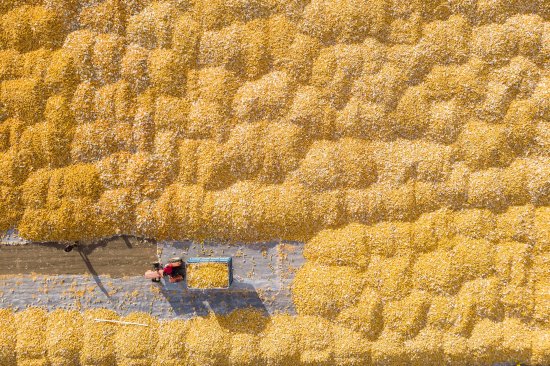
After 40 years fighting global hunger, Columbia University Professor Glenn Denning thinks he may have found a way to save the planet and feed everyone. But it’s not simple.
By 2050, 10 billion humans will need to be fed in a way that preserves the planet for future generations. Can it be done?
We can produce the food we need, and we can do it in a way that doesn’t wreck the planet. That’s the whole thesis of my book Universal Food Security. But we’re not on track now. We have a dysfunctional food system. A huge number of people don’t get the nutrients they need, and we’ve got this crowd that are overconsuming the wrong substances. Added together, about half the world’s population is not getting the right diet. At the same time, we’re damaging the planet in many ways: land degradation, biodiversity loss, climate change. A third of human-made greenhouse gases are coming from the food system.
[time-brightcove not-tgx=”true”]
How do we boost the food supply without increasing greenhouse gases?
It’s complicated. We can produce all the food we need with the land we have. The first thing we could save is forests; we could use the existing land, we could even shrink that land, because there’s so much potential for improving efficiency and productivity.
Can you give some examples of how?
Smallholder farming in Africa currently produces around, if I’m talking about a corn crop, one ton per hectare [2.5 acres]. We know how to increase that to three tons per hectare, simply by tweaking the inputs that farmers are using—a better variety of fertilizer and varieties of crop that are very well established. You can sustainably intensify production, which means you’re less likely to cut down forest. At the other end of the scale, say, in northeastern China, we can scale back, getting similar levels of production with less fertilizer going into the groundwater. Some places, where groundwater is being drained, should get out of agriculture.
Once we figure out how to grow enough food sustainably, have we solved the bulk of the problem?
No. Just as important, in terms of investment, is connecting production more efficiently to consumption: doing a better job of moving food from where it’s produced to where it’s consumed. That means roads, energy for refrigeration, and communications technology as well as softer infrastructure and governments that allow the free movement of food across national and international boundaries.
A large proportion of environmental damage occurs after food is harvested. What can be done about that?
One-third of the food that we produce never gets consumed. About 14% is “lost,” which means, essentially, from the farm to retail it “falls off the truck,” or it gets consumed by rats and insects, or it spoils. Another 17% is wasted. These losses are much higher in low-income settings, where people don’t have the technology to be able to store grain effectively. I have experience here, promoting agricultural production in Africa, only to see a lot of it being eaten by borers. And food waste is a big contributor to greenhouse-gas emissions because when food scraps decompose, they generate methane.
Will we have to change the way we eat?
We should. A very big part of the population is still underconsuming; 735 million people technically are hungry, based on energy consumption. But energy is not the whole story. More than 2 billion people have micronutrient deficiencies: iron, vitamin A, zinc, folate. When you have these deficiencies, your body function, your immunity is not operating at the level it should be.
Do you think the well-fed parts of the world under-estimate the power of hunger in the malnourished world?
Most people do, because their vision of hunger is starvation. But most hunger is long-term chronic hunger, kind of an invisible hunger. Aid gets dragged to the humanitarian crises, and not to long-term problems. I like the term food security, because if we’re food insecure, a natural progression of that is social instability. People riot because they’re hungry, or because food’s too expensive.
Where do you start to address that problem?
We recognize that a well-nourished nation is the basis of a prosperous nation. When half of your children are stunted, half of your future population have their growth and development, their cognitive skills, their educational capabilities, their lifelong earning possibilities curtailed. It’s what I tell every leader I meet, and a lot of them glaze over, because it’s not visible. They’re interested in roads and electrification that they can show the population. But so much growth can be achieved by improving nutrition.